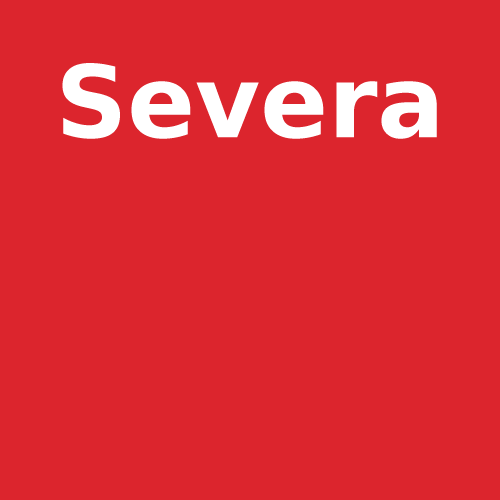WordPress vs. Joomla vs. Drupal
Even though there are dozens of decent Content Management Systems available, I’ve consistently come across WordPress, Joomla and Drupal. These three are open source, written in PHP and offer thousands of plugins. Combined together, they represent 16% of all websites – stats courtesy of a June 2010 W3 Techs survey.

WordPress is Easy
WordPress is by far the most popular CMS in the world. Some of the popular sites using it are techcrunch.com, blog.zdnet.com and phone.com. Here are a few reasons why:
- Easy to setup – WordPress has created a foolproof setup wizard. Also many hosting providers provide it as a turn-key solution.
- Low learning curve – Back in 2003, WordPress was designed to be the simpler and cooler alternative to MoveableType. So ease-of-use is inherently built into the product.
- +12,000 plugins – very simple to get add-ons for SEO, Form-handlers, Gallery, Newsletter, Captchas, Surveys, Polls, etc.
- Big developer community – you can quickly find PHP geeks to develop any bizarre extension into WordPress.
- Support & Training – It’s fairly easy to get third-party commerical support and training. An important factor for the corporate environment.
With so many great things to say, what’s so bad about WordPress? Well not that much, it’s strong, robust and somewhat secure. WordPress security did take a bad rep, but that’s so 2007. One area where WordPress fails is scalability. Without load-balancing, you’re better off looking at other options for high-traffic websites.
Joomla is Cool
The next level up is Joomla. It takes the easy-to-use concept of WordPress and makes it slightly more complex. But in the process adds greater flexibility, extensibility and scalability. It’s still primarily used by SMEs such as severa.com (where I work). The advantages of Joomla are:
- Relatively easy-to-use: It’s not as intuitive as WordPress, but not rocket science either.
- +6,000 extensions: These include shopping cart, newsletter, extensible user profiles, cool survey, lead-capture forms, etc.
- Fairly scalable: I can’t find any real documentation on how scalable Joomla is, but general talk puts its a few notches above WordPress.
- Strong Tech community: Just like WordPress, Joomla also has a big tech community behind it.
Even though it does offer some ease-of-use, it doesn’t beat WordPress in usability. But that’s nothing a little user training can’t take care off. Joomla also requires a bit more technical oversight, which means more dough to dish out during setup and maintenance.
Drupal: A Developers dream
The last option is Drupal – the most technical, complicated and powerful of the lot. Most of the bigger websites opt for Drupal. Thats why you can see it run on mtv.co.uk, economist.com and rutgers.com. The benefits of using Drupal are:
- Very Powerful: Drupal is a perfect fit for highly dynamic websites.
- +7,000 modules: The plugins are so full of code, they are called modules in Drupal. And there are plenty to go around.
- Developers Den: Since Drupal is designed for the true geek – you have a huge developer community behind it.
- Best Performance: I haven’t seen real numbers on performance but most techies boast about faster Drupal sites.
Even with all the good things to say about Drupal, I would be weary to recommend it for small-to-medium sized sites. It’s really a complex system and not for the faint-hearted. Unless you need the added coding power, its better to look at simpler/cheaper options.
How to select the CMS you want?
So to sumarize this discussion use the flowchart below to figure out what CMS may be right for you:










Steve
| #
Yes, I agree. WordPress sometimes is good enough. Drupal is very powerful and has a techy interface. It can be intimidating to some. I’ve never used Joomla, so I can’t comment on that.
JokelaRocker
| #
This gives a good wrap up. I find http://www.cmsmatrix.org to be a good site to compare CMS feature by feature.
Zaki Usman
| #
Hi Steve, thanks for your comments. Joomla is very powerful, but easy-to-use. I often use it with one of my clients (www.severa.com) and I find it a good balance between WP and Drupal.
Bjørn
| #
You only covered open-source/free CMS. A lot of bigger companies use commercial ones. What are the benefits and problems with commerical ones? It would be nice if you could cover that also.
Zaki Usman
| #
Bjorn, thats a good question. I found some others who have positioned commercial vs. open-source. I think this explains the pros and cons very well.
Micheas
| #
Acquia has been getting a lot of wins over commercial CMS’s.
Comparing Acquia’s spin of drupal (drupal with a dozen or so modules that most websites wind up using) to a commercial cms like the one that Zaki linked to makes the value proposition of commercial CMSs seem a little untenable.
As for the article that Zaki linked to, the four statements seem to be more an article of faith than reality.
Joomla dominates the category of website in the 1-6 million busiest websites (not the top million) because it is out of the box, what people expect of a content management system. Acquia Drupa, and wordpress also have all of the features that Contegra charges extra for. So the statement of lack of out of the box functionality rings false.
Second, WordPress, Drupal, and Jooma have all had multiple usability studies done to improve them, and will in the future. so the claim that only developer needs are catered to by opensource CMS’s is false.
Third, the developers of WordPress, Joomla, and Drupal are all driven buy commercial gain, as Automatic gets all of its revenue from WordPress, The majority of Joomla’s core team run businesses that derive all their revenue from Joomla, and Drupal’s core team includes employees of Acquia which is a VC funded company that only does Drupal websites, and that is a minority part of the core Drupal team so the idea that Opensource is risky because of a lack of profit motive among the developers is false, at least in the case of the big three open source CMSs.
Contegro’s fourth argument is clearly false in the case of WordPress and Drupal as both Automattic and Acquia have numerous employees that can commit fixes to the core of WordPress and Drupal respectively and Acquia makes a large portion of their revenue from custom Drupal installs.
http://acquia.com/resources/casestudies is a counter point to contegro’s claims. There seems to be move afoot to migrate from custom in house CMSs running coldfusion to Drupal.
Anders
| #
Don’t forget of http://www.typo3.com – that’s very big for enterprise content management.
Drew C
| #
Solid post, nice work. I think that flowchart at the bottom can be improved though… its too simple, yet the rest of the article is written in a more technical way. But there are other CMS to cover (open source including.)
Morkve
| #
I’ve always used WordPress. Its so easy to use. And there is also wordpress.com if you dont want to manage your server.
Tobias
| #
There are more good CMS types than the 3 you listed. Here are more to look at http://php.opensourcecms.com/
Miko
| #
I found CMS eye very cool. Thanks!
Zaki Usman
| #
Glad that you like it. We’ve halted development work on it for the time being. Maybe we’ll revisit in a few weeks when we’ve more bandwidth.
Mack
| #
Drupal is not that hard to setup and configure. It just requires a bit of learning curve. I have looked at Joomla and I find it more confusing than Drupal.
Charlotte
| #
I liked the CMS diagram. Its a bit too simple, but the idea is good. Maybe you can make it a bit more useful by putting in more variables and more CMS outcomes
David Wong
| #
Thanks for the simple and easy break down of the various content manager services. I have used WordPress the most.
Sweet CMS
| #
WordPress is by far the sweetest blogging platform. Love it! Used to be on Blogger before, but that isnt as optimized for SEO as WordPress is.
Anthony Topper
| #
I am surprised by the percentage of “Non-CMS” websites. I didn’t think it would be that high.
Zaki Usman
| #
Tony, you got a good point – but the latest stats on the top 3 CMS is roughly this:
WP – 4.5 million sites
Joomla – 1.5 million sites
Drupal – 400k sites
Considering there are over 100 mil registered domains (granted not all of them are actual sites) you can start to believe those numbers.
Anthony Topper
| #
Is it fair to call them “Non-CMS” sites though? How do we know they’re not using a home-grown CMS? Or something more obscure.
Zaki Usman
| #
The survey lists most of the CMS on their list http://w3techs.com/technologies/overview/content_management/all
If your CMS isnt there, then its a good chance its obsecure enough not to dent the stats too much. The whole point is to show that there are 3 major main stream CMS – WP, Drupal and Joomla.
Anthony Topper
| #
I realize my comment is really a side tangent.
I don’t think the number of home-grown and missing obscure CMSs matters. Saying “None” is not accurate. “Unknown” is the appropriate label in my opinion.
Zaki Usman
| #
That is a good point . Thanks.
Mad B.
| #
There’s a great multitasking system EBIZ CMS to: ebiz.org.ua – the most inexpensive of clever CMS in the world!
Wordpress | Guru
| #
Awesome post about CMS – what about TYPO3?
Bloggio
| #
(1) you have a “mis-wording” in your “Joomla is Cool” section. You probably meant to say “nothing” rather than “something” in :
“But that’s something a little user training can’t take care off.”
should be:
“But that’s nothing a little user training can’t take care of”
(2) You’ve disabled the dates here (except maybe your original post, which states the date of a study). With things developing rapidly it is important to know WHEN some opinion or assessment is made.
(The date of MY post: Feb 9, 2013)
Zaki Usman
| #
Thanks for the typo and the article was first posted in Nov 2010. We are releasing a new update on this post as an infographics.
New to CMS
| #
I am new in trying out various Content Management Systems. I came across Dot Net Nuke… anyone know how good it is?
Casey
| #
Definitely agree that Drupal is the developers dream!